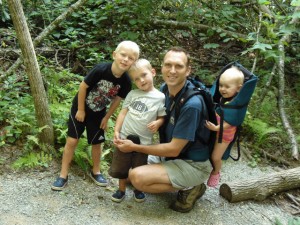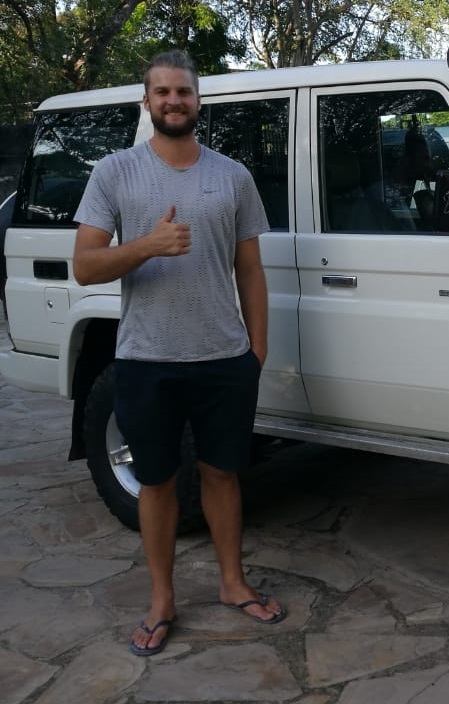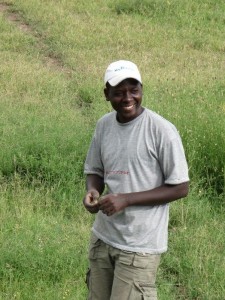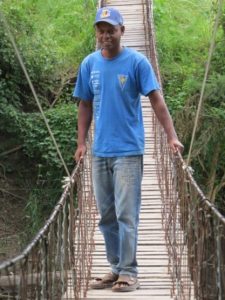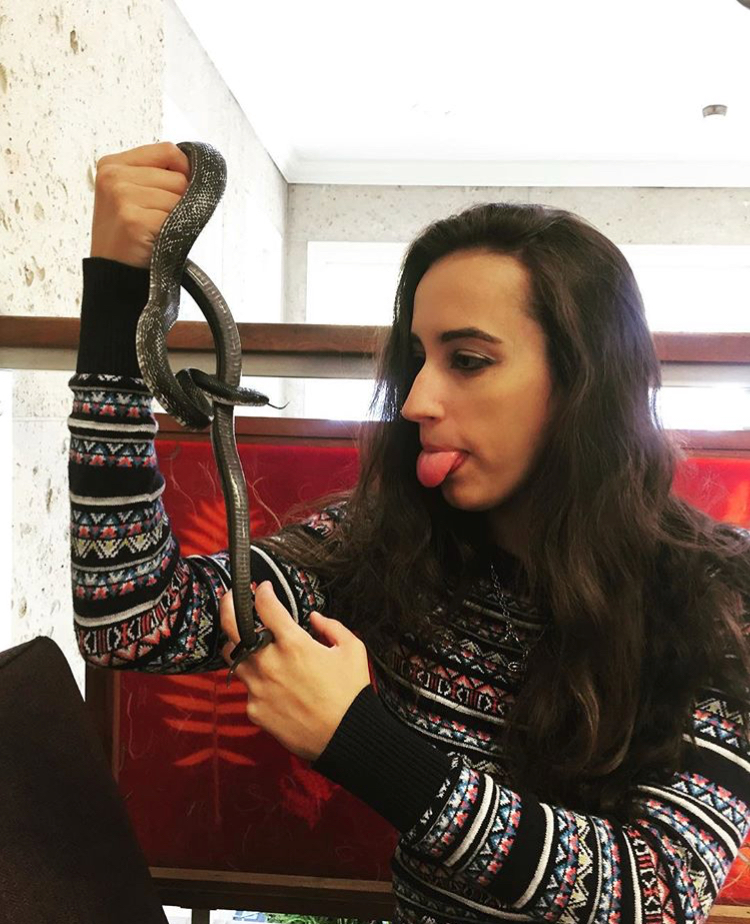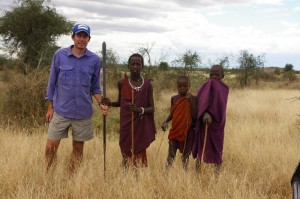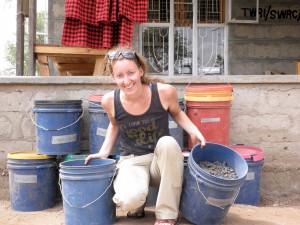Team Savanna Dynamics (from left to right: T.M. Anderson, D. Rugemalila, T.A. Morrison, M.L. Nzunda)
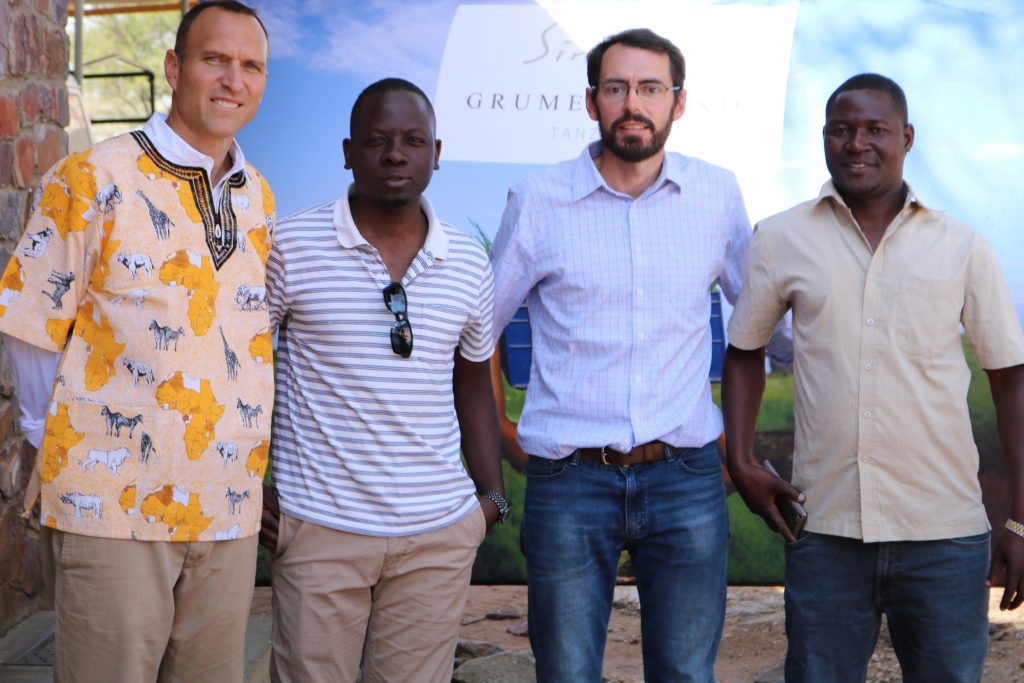
Principal Investigator
T. Michael Anderson – I joined Wake Forest University in January of 2010. Previously I was a post-doc at The University of Groningen in The Netherlands for three years and before that a post-doc at the USGS National Wetlands Research Center for one year. I received my PhD from Syracuse University in 2004 and a BS in Zoology from Oregon State University in 1997. I am particularly interested in the ecology of tropical grasslands and savannas, but my past research experiences are diverse, including studies of Yellowstone grasses, cactus-dwelling yeasts, tropical salamanders, temperate frogs and the menacing insect predator Notonecta kirbyi. At present I feel incredibly lucky to conduct research in Serengeti, one of the most exciting and spectacular ecosystems on earth!
Post-docs
Dr. Jason Donaldson – We are absolutely thrilled to have post-doc Jason Donaldson working on the project. Originally from South Africa, Jason brings with him a veritable boatload of expertise in savanna ecology. Jason trained with some of the top savanna ecologists in the world, including Sally Archibald, William Bond, David Richardson and Gareth Hempson. So, despite being a bit intimidated, we are really excited to have him as a collaborator on the project. In addition to having started a well-known savanna conservation blog and being a stellar photographer, Jason is also fanatical about a good braai (AKA South African barbecue) so expect to eat well when you are in the field with him!
Graduate Students
Deusdedith Rugemalila (“Deus”) – Deus is from Bukoba, Tanzania and has an undergraduate degree in Forestry from Sokoine University in Morogoro, Tanzania. He has been working with our project since 2010 and has collected the bulk of our data on tree abundance and distributions. Before joining our lab, Deus received a master’s degree from the University of Missouri in the lab of our collaborator Ricardo Holdo. Deus is studying tree seed limitation/bottlenecks in the savannas of Serengeti National Park, Tanzania. His work will contribute to the “savanna question”: why do savannas have so few trees, and why do they fail to outcompete and dominate the grass community? His research is focusing on quantifying the relative strength of seed limitation at various stages, such as seed production, viability, dispersal, predation, and infestation. This will also provide a gauge on the relative importance of recruitment limitation at multiple stages, from seed production to sapling recruitment. Read more about Deus’ research at his website: http://deusr.weebly.com/
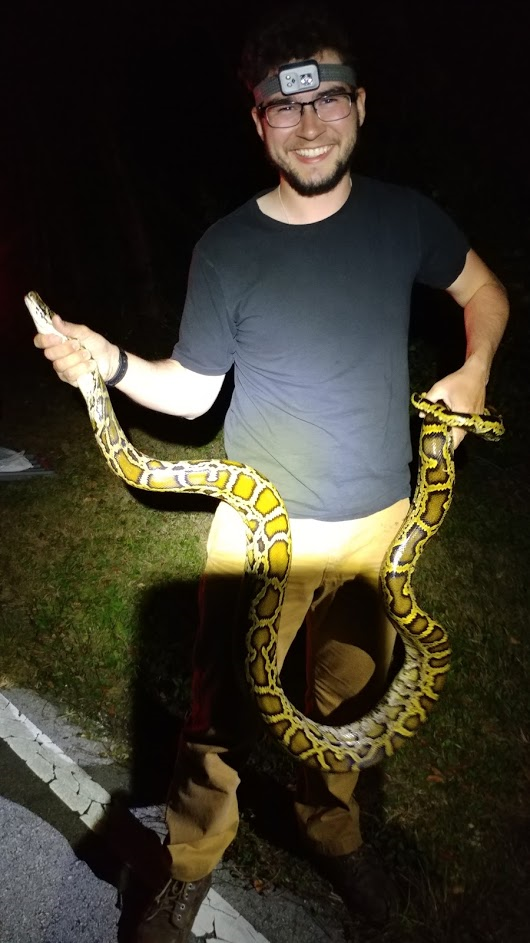
Chris Lopez – Chris is from Delaware where he graduated from the University of Delaware in 2017 (go Blue Hens!) with a B.A. in Biology. Before coming to Wake Forest, Chris hiked the Appalachian Trail from Maine to Pennsylvania (I get tired just imagining that!), worked for our very own Robbie Baldwin as a field technician, trapped Woodrats in the mountains of Pennsylvania, and captured Pythons while working as a field technician in South Florida (see exhibit A – big snake picture). Currently, Chris’ research at Pilot Mountain State Park focuses on the homogenization of vegetation in the park and determining the effects that deer browsing, as well as small mammals and environmental factors, are having on the vegetative community throughout the park. Chris is using deer exclosures and camera traps, but his plan is to establish small mammal exclosures and other experiments to better understand the ‘knock-on’ effects that deer are having on the faunal community within North Carolina forests.
Serengeti Research Staff
Jeremia Sarakikya – Jerry came originally from the Arusha region, but for him, Serengeti is like home. His father is a chef at Serengeti Wildlife Lodge, so Jerry spent much of his childhood in Serengeti. Jerry has been on our project since 2013, and in that time he developed into a highly skilled savanna research technician. In addition to his ecological knowledge, Jerry is particularly interested in the many high-tech ecological sensors we use on our project.
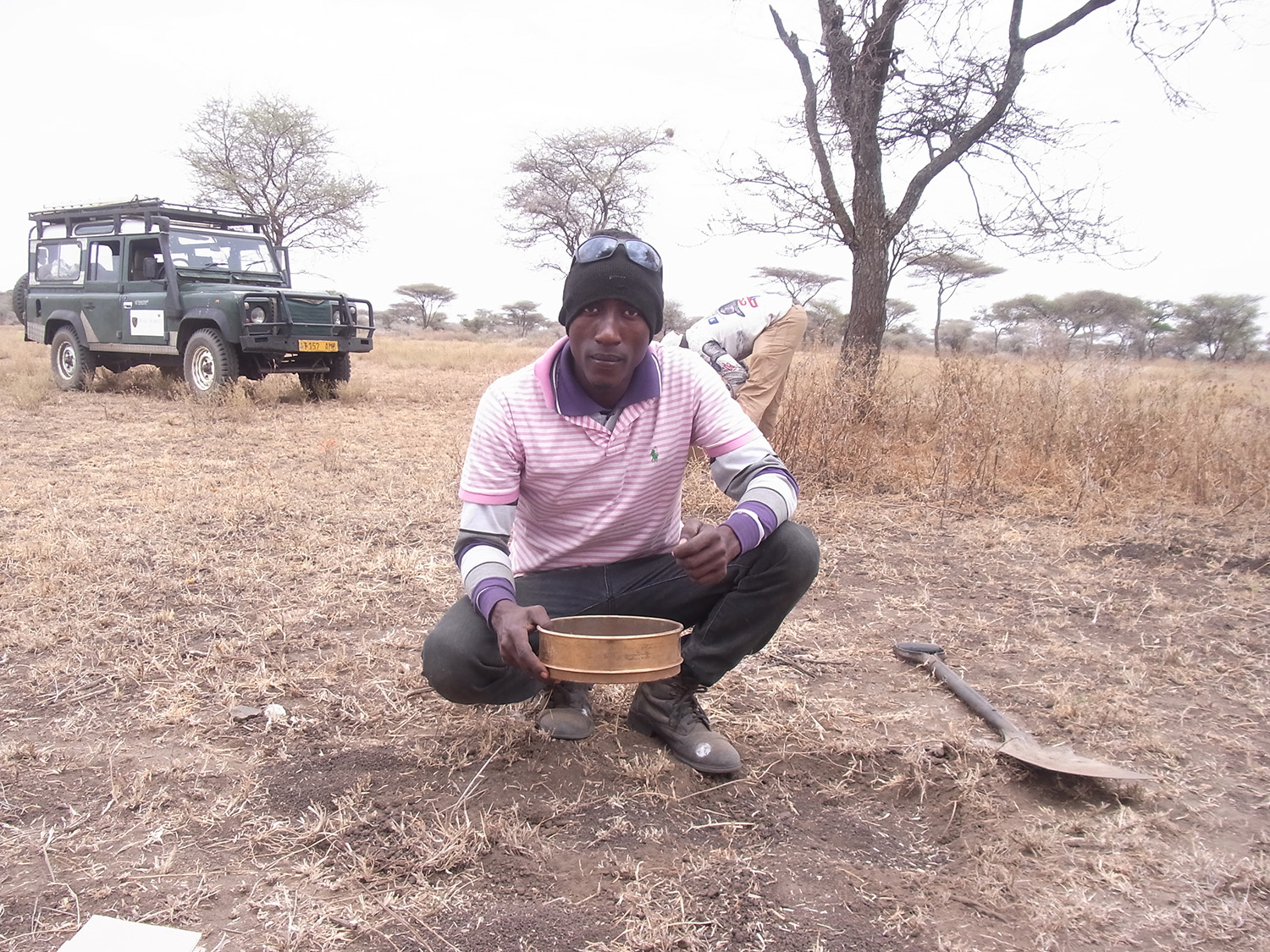
Meshach Mwita – received his degree in Wildlife Management and Conservation from Mweka College in Moshi, Tanzania. Meshach (pronounced ‘me-shack’) is from the town of Mugumu, which just out side of Serengeti, so when he is working in the park he feels right at home. We offer a big congratulations to Meshack for recently becoming a father.
Current Undergraduates
Aspen Stevanovski – Aspen was raised by a pack of wild cheetahs (OK, that’s not true… but she would love it if it were). Aspen joined the lab her sophomore year and has been a passionate asset ever since. Her love of biodiversity started young and continued through middle school when she put spiders in mean girls’ bags (with no regrets, apparently), high school when she tracked raptors and now college where she has cuddled giant African cattle, searched for wild coyotes and spent an entire two days at the National Zoo by herself. Aspen has an insane passion for predators, particularly felids (but as pets go, she’s a dog person). Aspen is our undisputed resident cheetah expert, never shutting up about them (her words, not mine). She is currently conducting research at a predator rescue facility testing if felids born/raised in captivity retain their fear/predatory avoidance instincts.
HALL OF FAME (gone, but not forgotten)
Post-docs
Dr. Thomas Morrison – We were very lucky to have Tom join the project as of November 2012. Tom brings a range of expertise to the group, including large herbivore ecology and modeling herbivore movement. Tom did his PhD at Dartmouth with Doug Bolger and recently completed a post-doc with Matt Kauffman at the University of Wyoming. Tom will be spending much of his time in Serengeti (lucky dog) conducting research to try and understand why savannas are such dynamic, heterogeneous systems. Find out more about Tom, his research (CV here) and his experiences in Serengeti by following this link:
Graduate students
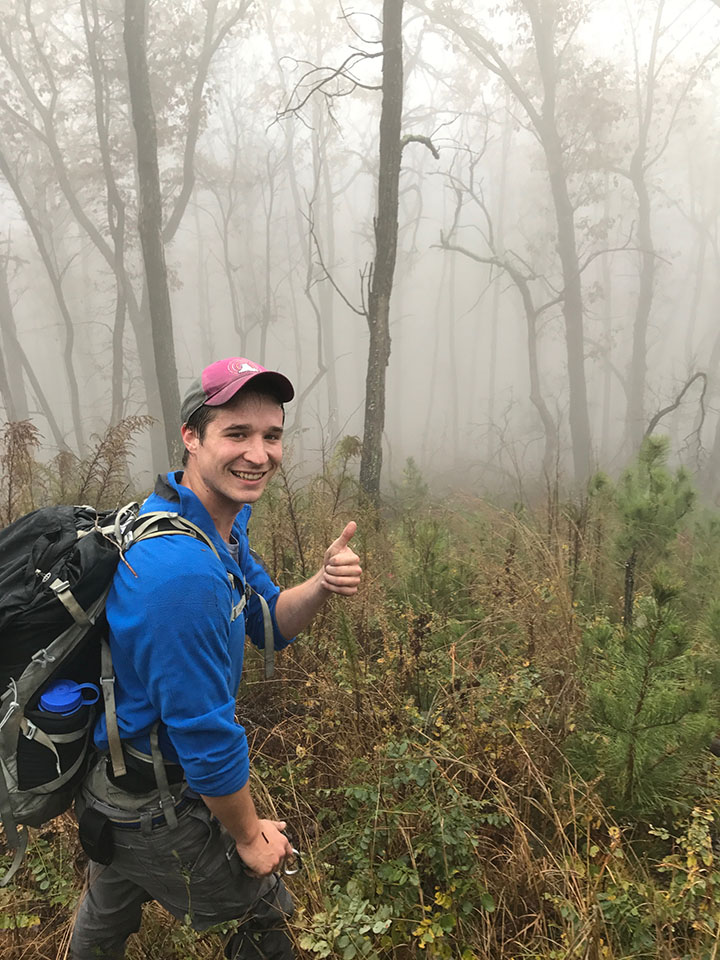
Robbie Baldwin (AKA the “Deer Whisperer”) – is from Chicago, IL and the good news is that he likes the Cardinals over the Cubs (nice!). Robbie got his B.S. in Biology from our very own Wake Forest University in 2017. That means he is very smrt. Robbie’s research focuses on the spatial and population ecology of white-tailed deer. He is conducting field work at Pilot Mountain State Park, NC, where, as an undergraduate, he established a network of camera traps as part of a stellar and impressive honors thesis. Robbie is specifically interested in using spatial modelling to improve census methods, quantifying the effects of browsing on local vegetation, and manipulating the landscape of fear within the park.
Daniel M. Griffith – I study plant ecology in savannas and grasslands. Briefly, I am pursuing research on plant-herbivore interactions, the distribution of C4 grasses, and fire mapping. My field work is conducted in Serengeti but my other work is greenhouse, meta-analytical, and GIS based. Feel free to contact me as I always enjoy talking about science! Check out my personal page as well as my current research project pages.
Kathleen Quigley – My dissertation research centers around soil-plant-herbivore feedbacks and the ecology of plant silica. I am also conducting a project on the spatial distribution and maintenance of Serengeti hotspots. For more info on any of these projects, visit my personal website.
Undergraduates
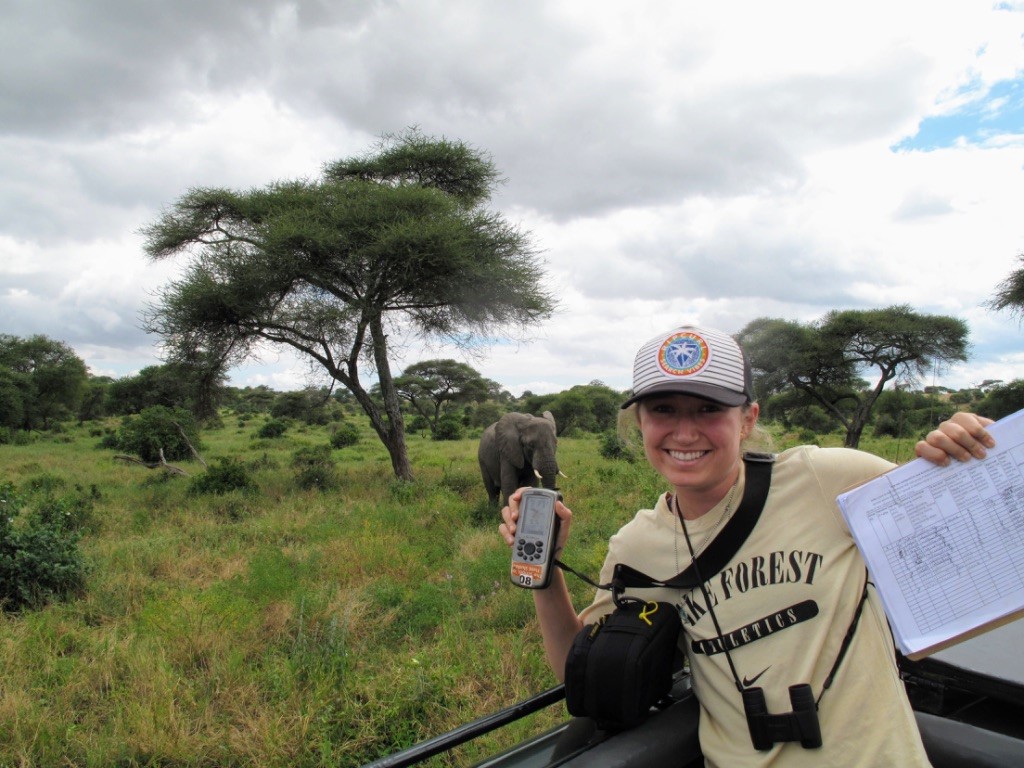
Madeleine Ward – grew up on the coast of Southern California, and although (according to her) the west coast is the best coast, she wanted to see what life is like on the other side of the country, which led her to Wake Forest. She has always had a love and fascination for wildlife, especially the kind in Serengeti. When she heard about the Anderson lab, she knew she had to get involved. The summer after joining the lab, Madeline studied wildlife conservation in Tanzania with the School for Field Studies. She enjoyed being there so much that she continued her undergraduate research in Serengeti under the supervision of Dr. Anderson. Madeline’s research is about how her all-time favorite ecosystem engineer, the African elephant, affects the mesoherbivore community though woodland damage. Madeline tells us that she love doing research because “it is like peering into the secret world of the animal kingdom”.
Megi Gjini – Like her names suggests, Megi is an actual genie. OK, not really, but she does work magic with our camera trap database from Serengeti. We are very lucky to have her! Megi comes to us via the Big Apple and ergo she is in charge of keeping us all up-to-date on all stuff hip. For the time being Megi “says” shes interested in medical school, but we are going to have her doing Ecology by the time she leaves Wake Forest.
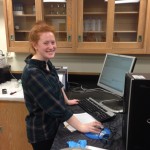
MC Regan ’17 – Hey I’m Mary Caroline (MC) Regan from Cambridge, MA and I’m a junior biology major at Wake Forest University. I hope to someday go to grad school for Marine Biology and work with marine life across the globe. My passions include talking about sharks, watching movies and of course, science!
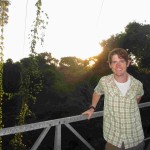
Ben Robb ’15- I am a Biology student with an Environmental Science minor from Pittsburgh, PA. My interests include plant ecology and conservation. I hope to go to graduate school to further pursue ecology and to become a significant member of the conservation movement. I currently am working with Dr. Anderson on the NUTNET project and I am carrying out an independent project on the effects of endophytes in herbivore deterrence in grasses. Ben is currently a graduate student with Matt Kauffman working on the super-cool project called the Migration Initiative.
Class of 2015: Macaela Seward, Lamar Pickett, Alisha Giri
Class of 2014: Emma Heizer, Shelby Oritz, Tori Erb, Cameron Flayer
Class of 2013: Austen Stovall, Molly McCurdy, Nicole Ross
Class of 2012: Dain Finke
Class of 2011: Glynnis Flickinger, Arif Ibrahim

